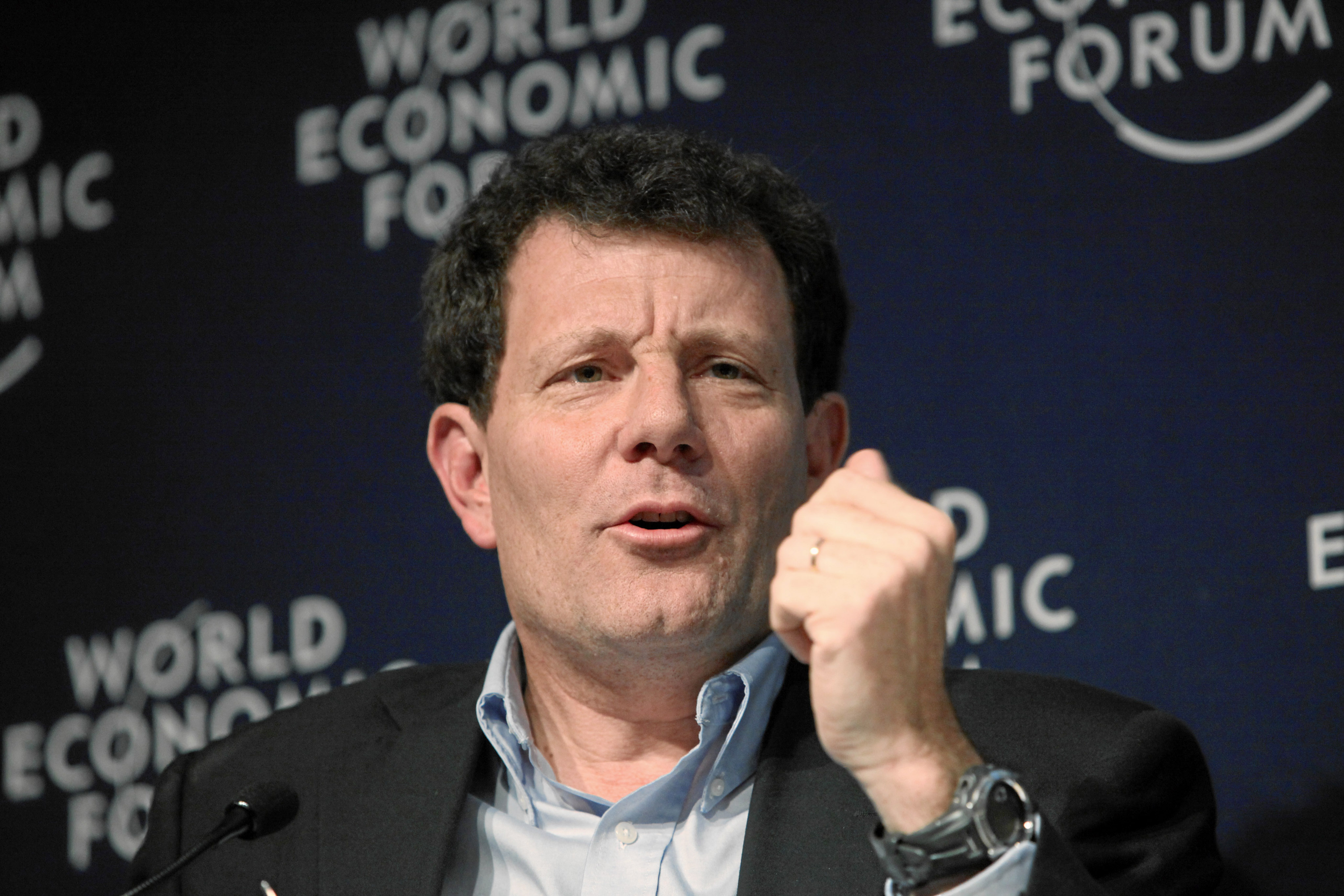
© World Economic Forum
swiss-image.ch/Photo by Monika Flueckiger
In a 2014 article, WaPo’s Emily Badger interviews Kristof on the topic of systemic racism: how it affects its victims and why it’s so difficult for white Americans to see that their advantages cause other people to be disadvantaged.
I grew up in rural Oregon, in a blue-collar area that has been very hard hit by meth, by family breakdown, by unemployment. And a lot of my friends and classmates have been struggling with all these issues. There is a real issue of personal responsibility and self-destructive behaviors — this is real. But it also arises from a context of hopelessness, a context in which people feel that there’s no escape, and then they self-medicate. And then that hopelessness becomes self-fulfilling. And that’s true of whites, and that’s true of blacks…
Emily Badger: You’ve cited a lot of data in these columns that seems pretty powerful and hard to argue with.
People were very taken aback by the figure in particular that the wealth gap between whites and blacks today in America is greater than the black-white wealth gap was in Apartheid South Africa. That was a factoid that clearly shocked a lot of people. But then the lesson that a lot of people drew from it was “well, boy, that just underscores how irresponsible so many African-Americans are,” which is precisely the opposite of the point I was trying to make.
…I think that there’s no doubt that successful people have this narrative that “I succeeded because I worked hard, studied hard, obeyed the law, and that just shows that anybody in this country can succeed if they will just behave themselves.” I think about my friends growing up, who were in many cases, just as smart and hard-working as anybody else, but didn’t have a family that pushed them. So if they made the decision to drop out of school, that was a decisions that really haunted them. I think it’s really hard for people who were born on third base, and whose friends were born on third base, and who assume kind of a third-base context, it’s really hard to understand the enormous obstacles that face those who in early life encountered a much less rosy environment. It’s so easy to hit a home run from third base and say “boy, this is pretty easy, why can’t everyone else do this?”

Alice Yanes IDK if you saw my reply on Twitter … Kristof has been working very hard for years with his wife Sheryl WuDunn to help mainstream society see truths it is uncomfortable with.
The interview and article built around it are very interesting. I think you’ll enjoy the read if you have a few minutes to look it over.